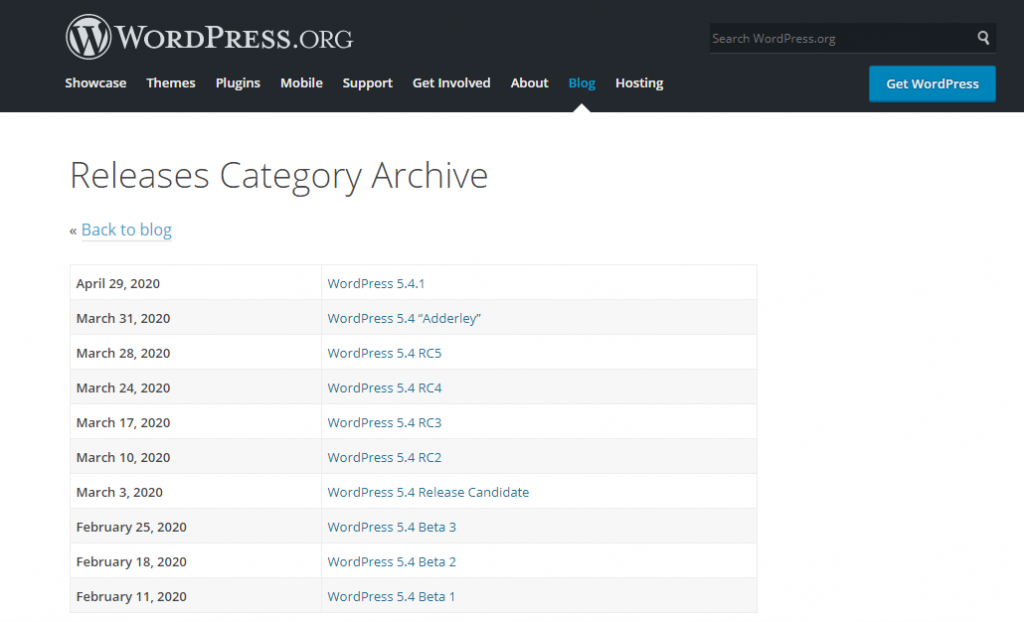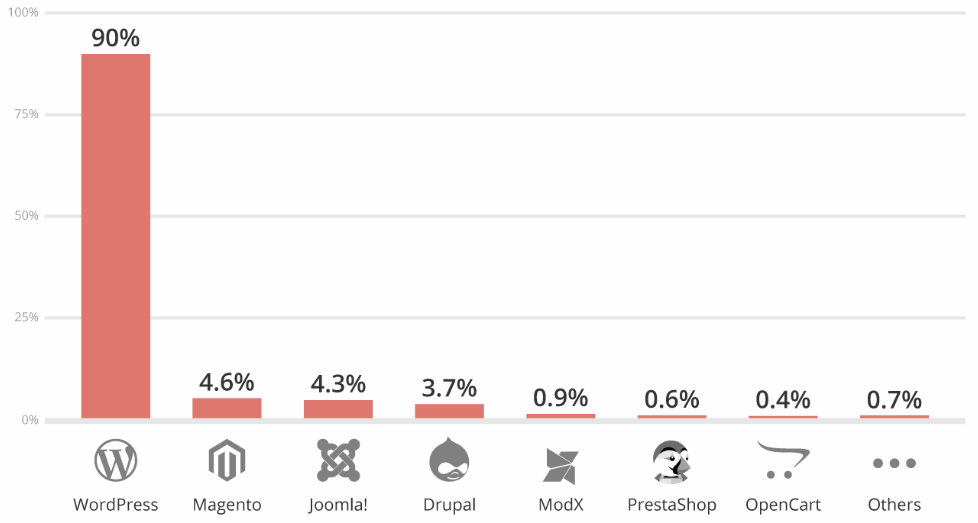Today, we will show you the pros and cons of open-source CMS.
In today’s digital landscape, Content Management Systems (CMS) are the cornerstones of website creation.
These software applications empower users to publish content, manage media, and build websites without extensive coding knowledge.
However, a crucial decision arises: Open-source or closed-source CMS?
Let’s delve into the advantages and disadvantages of open-source CMS platforms, helping you determine if they’re the right fit for your web development needs.
Table of Contents
How Is Open Source CMS Different From Closed Source CMS
Unlike their closed-source counterparts, open-source CMS platforms grant users access to the underlying source code. This transparency allows for:
- Customization: Developers can modify the core code to tailor the CMS to specific website functionalities.
- Flexibility: A vast array of plugins and themes, often created by independent developers, are available to extend the CMS’s capabilities.
- Cost-Effectiveness: Open-source software typically comes with minimal or no licensing fees, making it an attractive option for budget-conscious users.
Examples of open-source CMS platforms include WordPress, Drupal, Joomla, and Magento. These platforms power millions of websites worldwide, catering to diverse needs, from simple blogs to complex e-commerce stores.
READ ALSO: Best Windows 7 Operating System Alternatives
Pros Of Open Source CMS
Freedom
Open-source CMS platforms don’t hold the source code hostage. This transparency unlocks a treasure trove of possibilities:
- Tailored Functionality: Developers can delve into the core code, meticulously crafting features that perfectly align with a website’s unique needs. Imagine transforming a simple blog into a full-fledged e-commerce platform, all within the open-source framework.
- Limitless Creativity: Open-source empowers developers to push boundaries. They can modify existing functionalities, integrate custom features, and create an outstanding website. This freedom fosters innovation and caters to niche website requirements.
READ ALSO: A Step-by-Step Guide To Website Development
Affordability
Open-source CMS stands as a champion for budget-conscious users. Here’s why:
- No Licensing Fees: Unlike closed-source platforms, often with hefty licensing costs, open-source CMS eliminates this financial burden. This makes it ideal for startups, small businesses, and individuals seeking a cost-efficient website development solution.
- Reduced Maintenance Costs: The open-source model fosters a vibrant community contributing to ongoing development and maintenance. While some customization might require developer expertise, the overall maintenance costs are typically lower than those of closed-source platforms.
Large Repository
The open-source philosophy thrives on community collaboration. This translates to several significant benefits:
- Vast Repository of Extensions: The open-source community creates a wealth of free or low-cost themes, plugins, and extensions. These add-ons enhance website functionality, adding features like contact forms, SEO optimization tools, and social media integration. Imagine a library overflowing with tools to craft the perfect website, all readily available.
- Rapid Updates and Security Patches: A large developer base contributes to frequent updates and security patches. Bugs are identified and addressed quickly, improving the overall stability and security of the CMS platform. This ensures your website remains protected from evolving cyber threats.
- Collaborative Problem-Solving: A vast online community provides readily available support. Users can find solutions to common issues through forums, tutorials, and knowledge bases. This cooperative spirit fosters a culture of knowledge-sharing and problem-solving, ensuring swift assistance when needed.
Frequent Updates
Open-source CMS typically has an expansive network of developers who will work on regularly ensuring patches are released to resolve bugs and glitches. Once a bug or glitch is reported, you should expect a speedy solution from the next update.
Additionally, the core CMS developers are usually involved in the major update of the software in question, reassuring users of their commitments to maintenance.
Wide Support
Technically, Open Source CMS is more used for website building than its counterpart. Using WordPress once again as an example, a WordPress user can quickly get help/support if they run into an issue with any WordPress theme or plugin via the WordPress support forums and several blogs on the internet.
There is a high chance that thousands have dealt with whatever issue they are dealing with in the past. Also, you can quickly fix any WordPress issue by updating or uninstalling the plugin or theme.
Read Also: WordPress Hardening: 7 Ways To Harden Your Website Security
Cons Of Open Source CMS
Security Risks
The very nature of open-source software, its accessibility, can be a double-edged sword when it comes to security:
- Vulnerability Exposure: The open availability of source code can expose potential vulnerabilities to malicious actors. Security breaches can occur if proper maintenance and updates are neglected. Regular updates and security patches are essential to mitigate these risks.
- Reliance on Third-Party Plugins: Open-source platforms rely heavily on plugins for extended functionality. However, these plugins might not receive ongoing updates or support from their creators. Outdated or unsupported plugins can introduce security vulnerabilities or compatibility issues, leaving your website susceptible to attacks or malfunctions.
Limited Direct Support
While online communities offer a wealth of information and assistance, direct technical support from core developers might be limited with open-source CMS:
- DIY Troubleshooting: Complex technical issues might require users to delve into forums, tutorials, and knowledge bases to find solutions. This can be time-consuming and requires a certain level of technical expertise.
- Developer Reliance: For intricate problems, hiring a developer familiar with the specific open-source platform might be necessary. This adds cost to consider, potentially negating some of the initial cost benefits of open-source CMS.
READ ALSO: The Ultimate WordPress Security Guide
Maintenance and Updates
The open-source model fosters a sense of user responsibility:
- Update Vigilance: The onus falls on the user to stay updated with the latest security patches and core software updates. Neglecting these updates can leave your website vulnerable to known exploits.
- In-House Expertise: Depending on the complexity of the website and the chosen open-source platform, in-house technical expertise might be required for ongoing maintenance and troubleshooting. This can be a challenge for users with limited technical knowledge.
Conclusion: Weighing the Pros and Cons
Open-source CMS offers a powerful and versatile toolkit for web development. However, it’s essential to be aware of the potential security challenges and the limitations of direct support.
You can make an informed decision by carefully considering these drawbacks and evaluating your specific needs and technical capabilities.
For users who prioritize budget-friendliness, customization, and a collaborative development environment, open-source CMS can be a perfect fit.
However, a closed-source platform might be a better choice if robust security, user-friendly interfaces, and dedicated customer support are paramount.
Note: This was initially published in June 2020 but has been updated for freshness and accuracy.
RELATED POSTS
- Most Effective Cybersecurity Strategy For A Small Business [We Asked 45+ Experts]
- How to Secure Your WordPress Website from Hackers
- Joomla Resources Directory hack exposes 2,700 encrypted users’ passwords
- Large-scale attack campaign targets WordPress sites’ database credentials
- Full ProtonVPN Review [Based On Multiple Tests]
- GoDaddy Web Hosting Review 2022 [Unbiased]
- How To Host a Website On Hostinger
- How To Host A Website On iPage
- How To Host a Website on Namecheap
About the Author:
John Raymond is a cybersecurity content writer, with over 5 years of experience in the technology industry. He is passionate about staying up-to-date with the latest trends and developments in the field of cybersecurity, and is an avid researcher and writer. He has written numerous articles on topics of cybersecurity, privacy, and digital security, and is committed to providing valuable and helpful information to the public.
Meet Angela Daniel, an esteemed cybersecurity expert and the Associate Editor at SecureBlitz. With a profound understanding of the digital security landscape, Angela is dedicated to sharing her wealth of knowledge with readers. Her insightful articles delve into the intricacies of cybersecurity, offering a beacon of understanding in the ever-evolving realm of online safety.
Angela's expertise is grounded in a passion for staying at the forefront of emerging threats and protective measures. Her commitment to empowering individuals and organizations with the tools and insights to safeguard their digital presence is unwavering.









